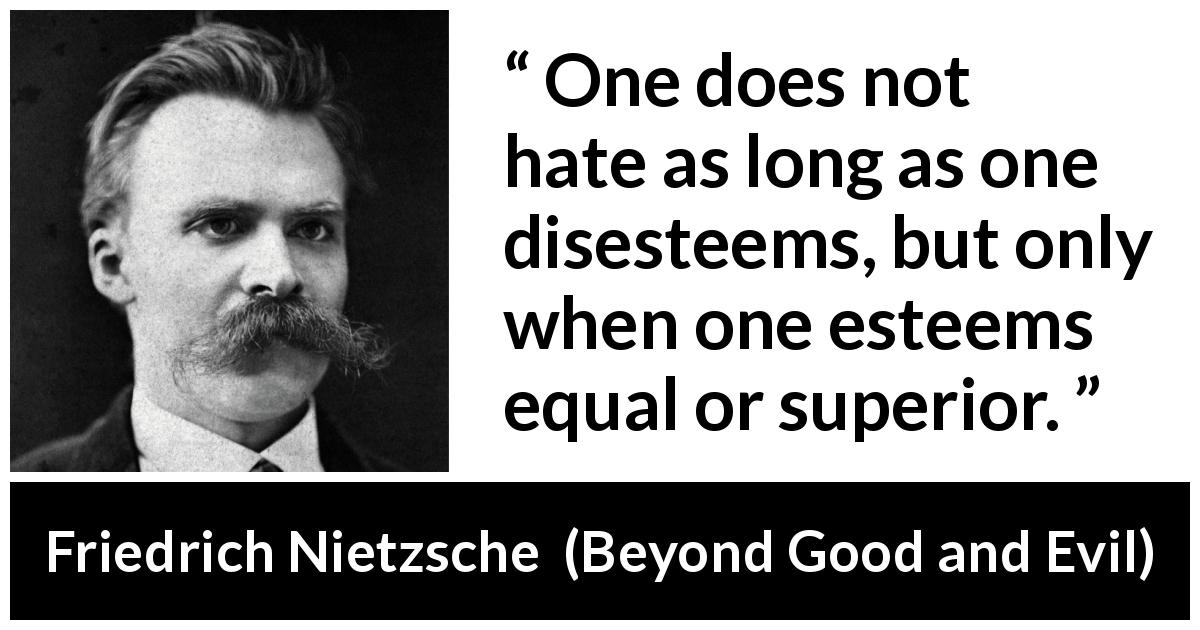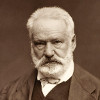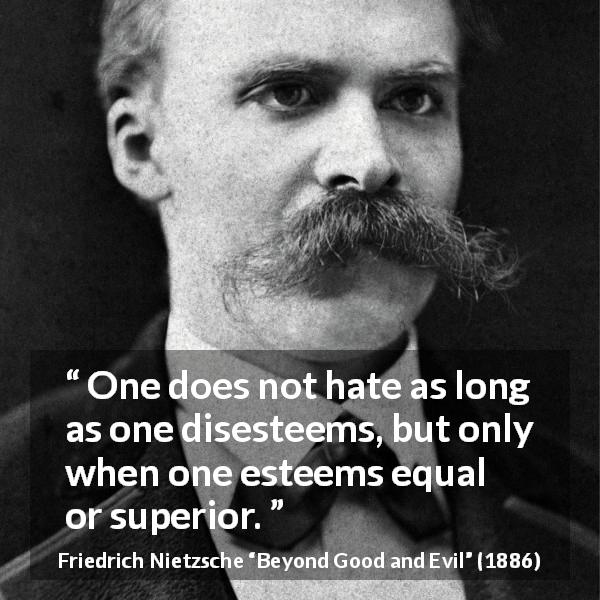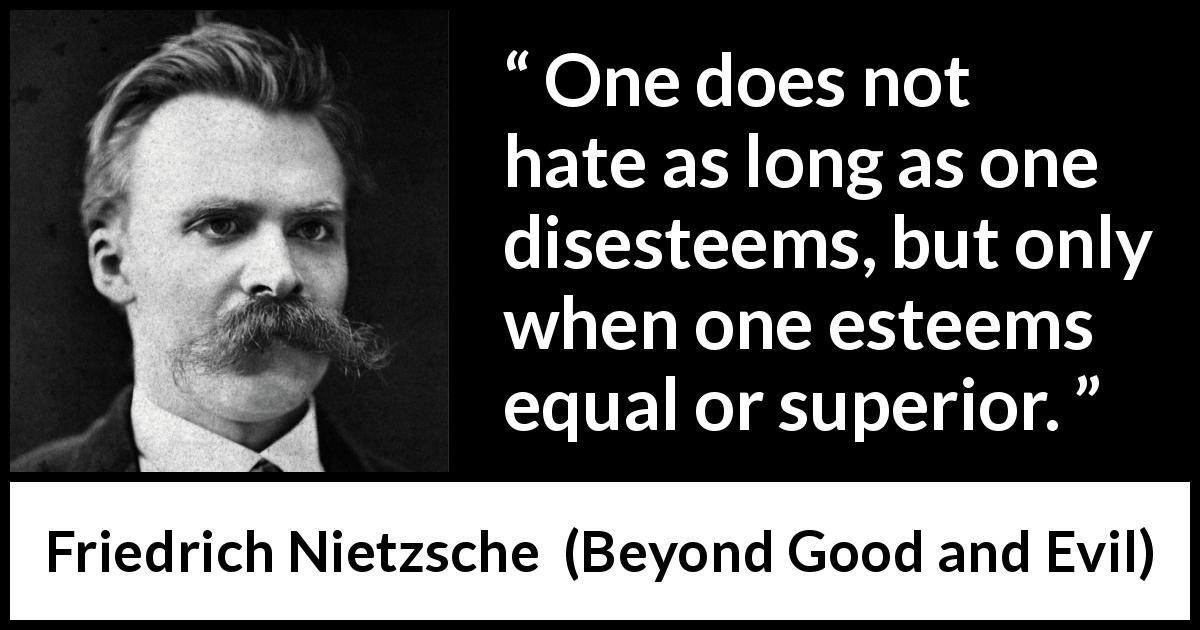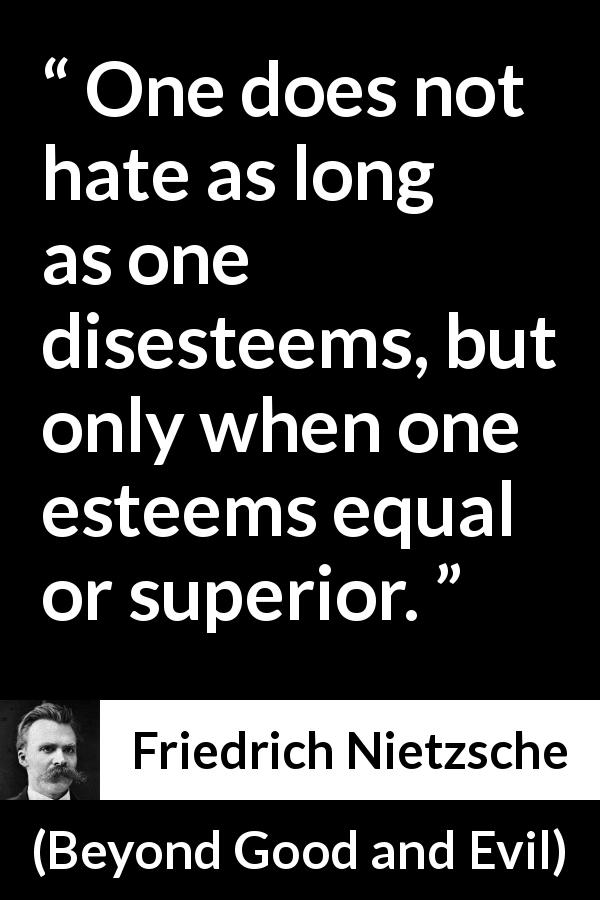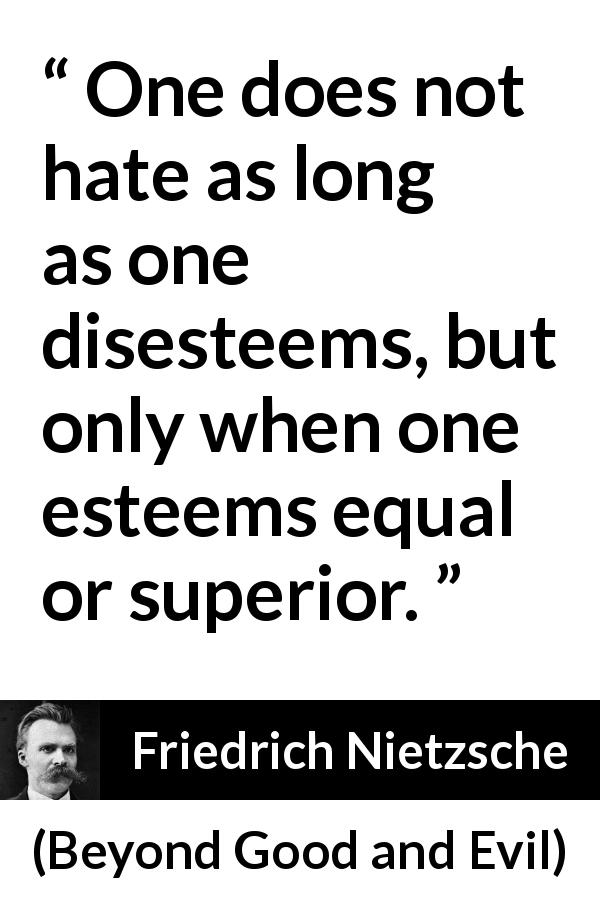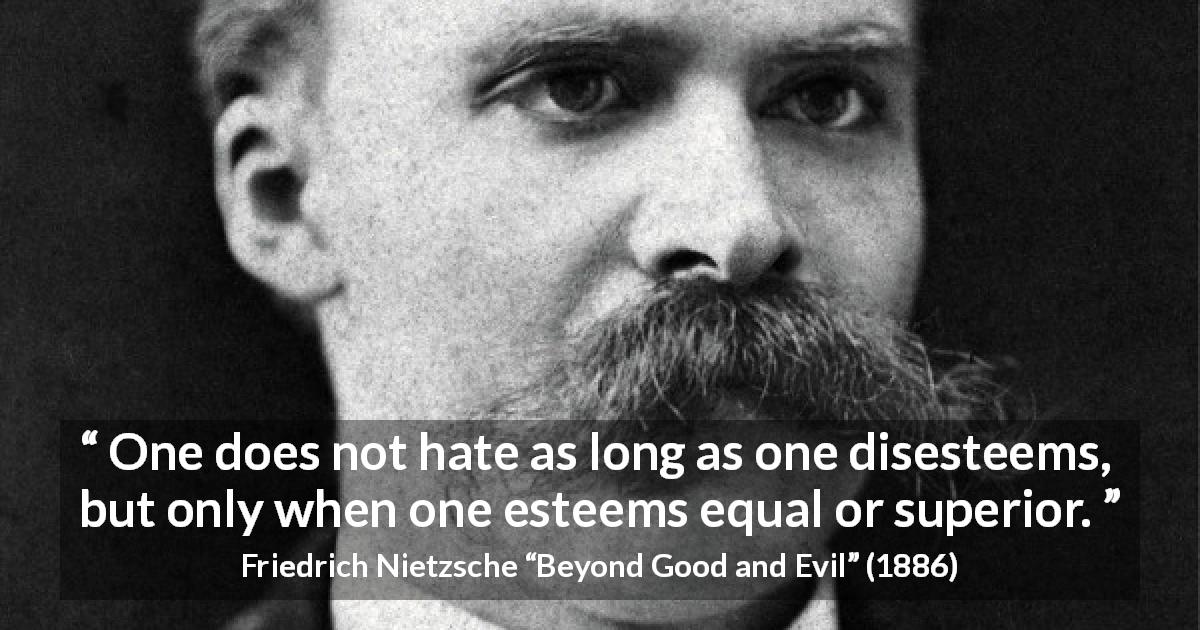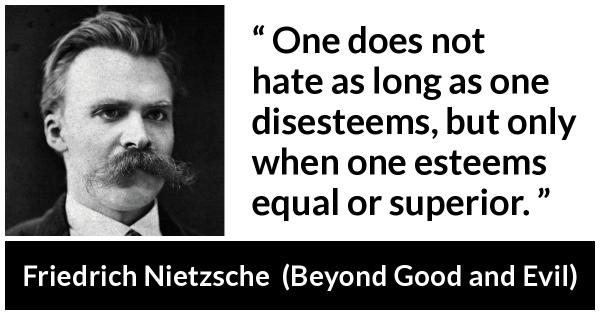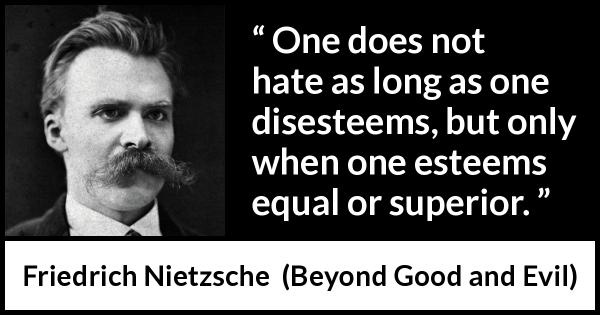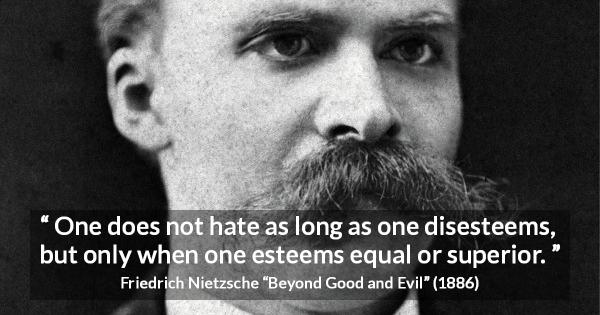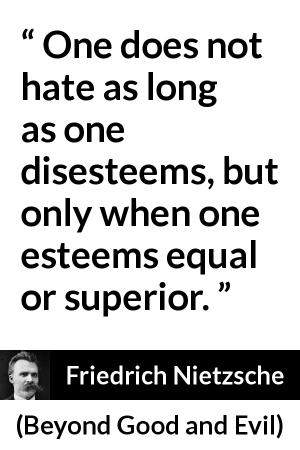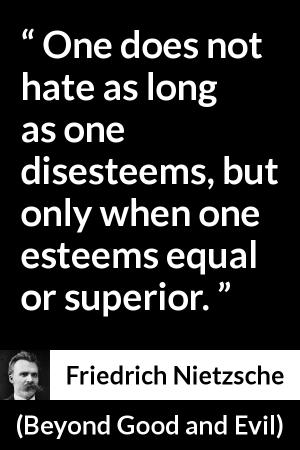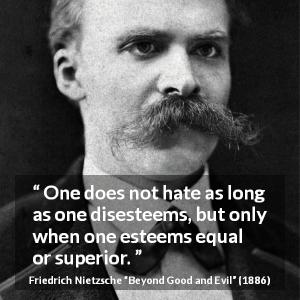“ One does not hate as long as one disesteems, but only when one esteems equal or superior. ”
Friedrich Nietzsche, Beyond Good and Evil (1886). copy citation
| Author | Friedrich Nietzsche |
|---|---|
| Source | Beyond Good and Evil |
| Topic | hate superiority esteem |
| Date | 1886 |
| Language | English |
| Reference | |
| Note | Translated by Helen Zimmern |
| Weblink | http://www.gutenberg.org/files/4363/4363-h/4363-h.htm |
Context
“Pity has an almost ludicrous effect on a man of knowledge, like tender hands on a Cyclops.
172. One occasionally embraces some one or other, out of love to mankind (because one cannot embrace all); but this is what one must never confess to the individual.
173. One does not hate as long as one disesteems, but only when one esteems equal or superior.
174. Ye Utilitarians—ye, too, love the UTILE only as a VEHICLE for your inclinations,—ye, too, really find the noise of its wheels insupportable!
175. One loves ultimately one's desires, not the thing desired.” source
172. One occasionally embraces some one or other, out of love to mankind (because one cannot embrace all); but this is what one must never confess to the individual.
173. One does not hate as long as one disesteems, but only when one esteems equal or superior.
174. Ye Utilitarians—ye, too, love the UTILE only as a VEHICLE for your inclinations,—ye, too, really find the noise of its wheels insupportable!
175. One loves ultimately one's desires, not the thing desired.” source
